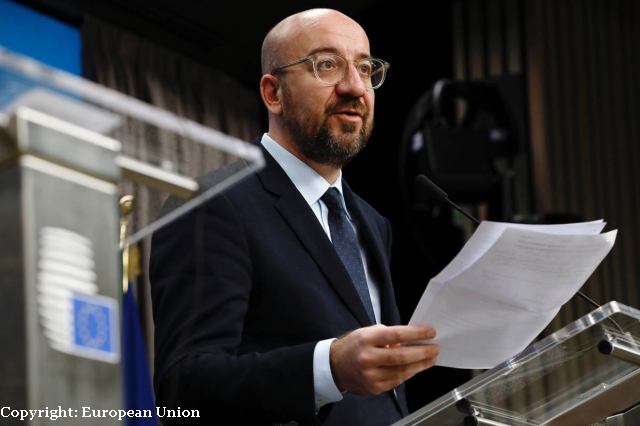World Summit for the Climate Crisis
The climate report for 2021 shows a world changing under our very eyes

Corina Cristea, 05.11.2021, 13:08
Extreme weather events, including strong heat waves and devastating floods, are now the new normal, according to the World Meteorological Association. The climate report for 2021 shows a world changing under our very eyes. The average temperature over the last 20 years is about to go, for the first time, over 1 degree Celsius above pre-industrial levels, and the sea level is at a new high this year, according to the study. The figures were published ahead of time in order to coincide with the UN climate change conference, COP26, held in Glasgow recently. The conference had been scheduled for 2020, but was postponed due to the pandemic. The gathering is meant to study progress made in terms of commitments under the Paris Agreement meant to keep global warming below 2 degrees Celsius above pre-industrial levels, and to continue efforts to limit it to 1.5 degrees. The reason why 1.5 degrees is a vital threshold is that, according to climate scientists, holding global warming below this limit is the only way to save the planet from the destabilizing effects of climate change. Political leaders from almost 200 countries, but with notable absences for major polluters, took part in the summit, described as a last ditch effort, and one that could bring major changes in everyday life.
Starting the conference, European Council President Charles Michel also emphasized that humanity has to act now to limit global warming, recalling that the EU opened the way towards carbon neutrality by 2050, with even more ambitious projects by 2030. He said that all of us, humanity, have waged war on nature, and we have to stop this threat and offer hope to future generations, that science shows that clearly. In Europe, and elsewhere, young people have raised our awareness, and it is our duty and responsibility to rise to the occasion. The EU hears this call, and is fully committed, with ambitious objectives, said Charles Michel.
The expectation of developing countries is to receive hefty financial aid packages from rich countries. The president of Malawi, Lazarus Chakwera, said that this was not about charity, but about paying the cleaning bill for those who contributed to bringing the planet Earth, our home, to the state it is in. This statement comes at a time when poor countries, very little responsible for climate change, are among the worst affected by its effects. However, climate change does affect every single country in the world. In preparation for the Glasgow summit, the White House, the American intelligence community, and the Pentagon have recently published a set of documents on the way in which global security will be threatened by climate change. The report reveals the growing worries that the American administration has. Among them are a possible reformulation of US strategic interests, the fact that Americas enemies may get new opportunities, such as is the case with China, and may enhance instability in nuclear armed states such as Pakistan and North Korea. Geopolitical tensions will be growing over the next decades, because all countries will feel the physical effects of climate change, while the drought and other extreme weather events may spark conflicts and lead to massive population shifts. As US President Biden put it:
“We meet with the eyes of history upon us, and profound questions before us. Its simple: Will we act, will we do what is necessary? Will we seize the enormous opportunity before us? Or will we condemn future generations to suffering?”
PM Boris Johnson called for concrete action, warning that a failure of the conference would trigger rage and uncontrollable impatience across the world:
“Humanity has long since run down the clock on climate change. Its one minute to midnight on that Doomsday Clock, and we need to act now. If we dont get serious about climate change today, it will be too late for our children to do so tomorrow. I was there, with many of you, in Copenhagen 11 years ago, when we acknowledged we had a problem. I was there in Paris, six years ago, when we agreed to net zero, and to try to restrain the raise in temperature of the planet to 1.5 degrees. And all those promises will be nothing but blah, blah, blah — to coin a phrase; and the anger and the impatience of the world will be uncontainable unless we make this COP26 in Glasgow the moment when we get real about climate change.”






























